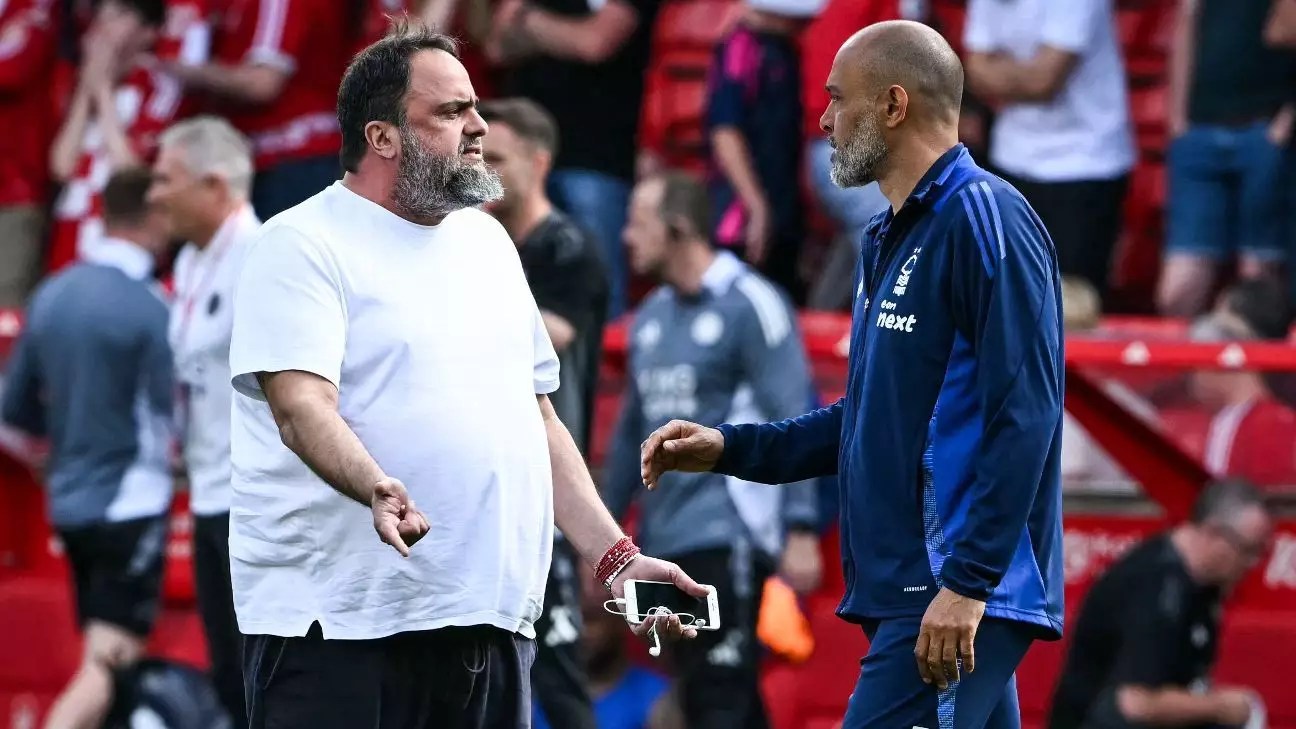In a dramatic display of passion and commitment, Nottingham Forest’s owner, Evangelos Marinakis, made headlines during a recent match against Leicester City. His decision to storm onto the pitch was not a result of simmering tensions with manager Nuno Espirito Santo, but rather an instinctual reaction to witnessing forward Taiwo Awoniyi in visible distress. This incident underscores a deeper narrative about the connection between a club’s leadership and its players, highlighting the emotional investment that can sometimes lead to dramatic on-field interventions.
The Burden of Responsibility
Marinakis’ actions were interpreted by many as a reflection of a deep-seated concern for his team’s wellbeing. According to statements released by the club, he perceived Awoniyi’s condition not just as a personal incident but as a broader reflection of the unity and values ingrained within Nottingham Forest. When a player suffers, it resonates deeply within the fabric of a team and its supporters. Owner involvement, particularly in urgent situations, can serve as a double-edged sword; while some may view it as overstepping, it also reinforces the message that the club prioritizes the welfare of its players above all else.
Awoniyi’s Injury: A Catalyst for Action
The immediate context of Marinakis’ passionate emergence from the sidelines was Awoniyi’s injury sustained when he collided with the goalpost. Witnessing a player in agony undoubtedly triggered a response from the owner, underscoring an emotional side of football that often remains unacknowledged. The club later announced that the Nigerian international underwent abdominal surgery, highlighting the severity of his condition. Such incidents can often lead to a heightened sense of urgency, and Marinakis’ passionate reactions could help drive home the importance of player health and safety, both physically and mentally.
The Role of Leadership in Football
The discussion surrounding Marinakis and his actions raises important points about leadership in modern football. The narrative often focuses on managerial strategies and player tactics, while the emotional intelligence of club executives can equally dictate a team’s morale and success. Marinakis’ swift decision to engage directly with the situation reveals a leader who is not only invested in the club’s commercial success but also in the emotional welfare of his players. This human element is crucial, especially in a sport where the pressures and stakes are soaring ever higher.
A Culture of Care
As Nottingham Forest navigates the tumultuous waters of ambition and competition, Marinakis’ outburst may serve as a reminder of the culture of care that should permeate every level of the organization. Leaders who demonstrate emotional involvement can foster an environment where players feel valued beyond their athletic abilities. This emotional investment can lead to greater performance, increased loyalty, and a resilient team spirit. While some may question the appropriateness of Marinakis’ presence on the pitch, it exemplifies a narrative that every club should aspire to—one where leadership manifests through genuine concern for the players who make the team what it is.
Through Marinakis’ actions and the subsequent embrace of player wellbeing, Nottingham Forest exemplifies the evolving role of ownership in football, proving that empathy can be as pivotal as strategy in building a successful football club.


Leave a Reply